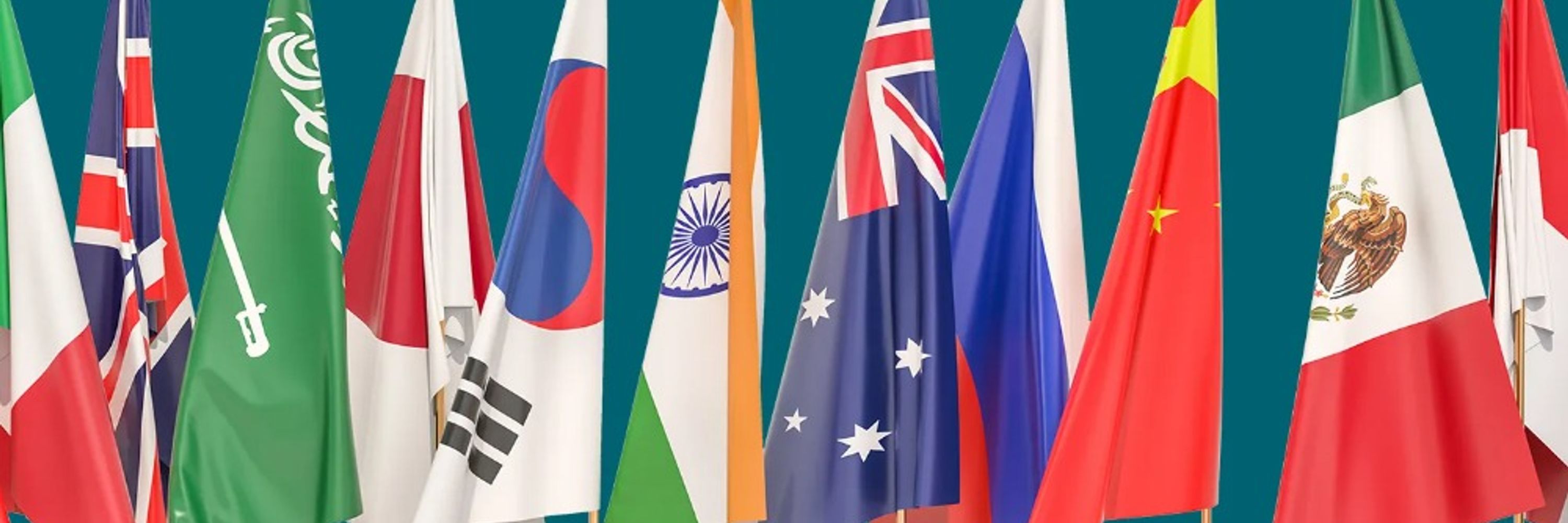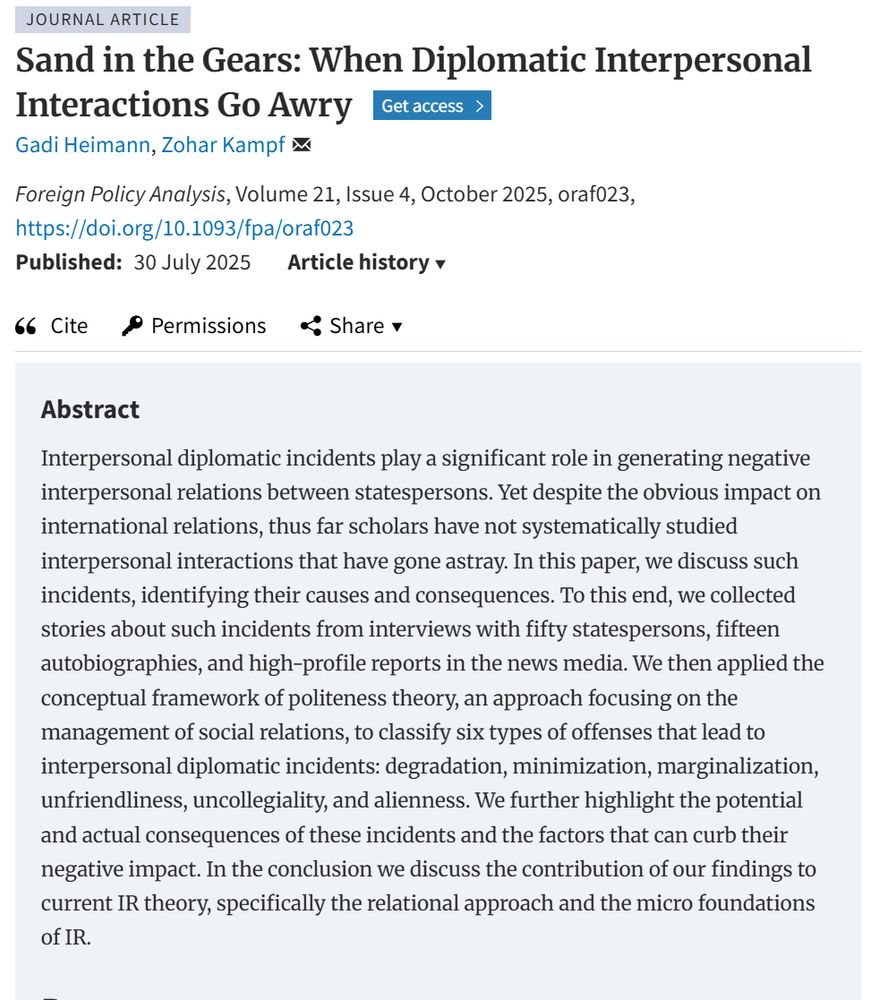
Editors-in-Chief: Brian Lai & Lisbeth Aggestam
academic.oup.com/fpa/article-...

academic.oup.com/fpa/article-...
academic.oup.com/fpa/article/...

academic.oup.com/fpa/article/...
academic.oup.com/fpa/article-...

academic.oup.com/fpa/article-...
academic.oup.com/fpa/article/...

academic.oup.com/fpa/article/...
academic.oup.com/fpa/article/...

academic.oup.com/fpa/article/...

academic.oup.com/fpa/article/...

academic.oup.com/fpa/article/...
Abu-Haltam (2025) shows that Jordan practices “indirect bandwagoning,” subtly aligning with U.S. interests by limiting China’s influence without open confrontation, illustrating how aid-dependent states navigate great power rivalry.
academic.oup.com/fpa/article/...

Abu-Haltam (2025) shows that Jordan practices “indirect bandwagoning,” subtly aligning with U.S. interests by limiting China’s influence without open confrontation, illustrating how aid-dependent states navigate great power rivalry.
academic.oup.com/fpa/article/...
academic.oup.com/fpa/article-...

academic.oup.com/fpa/article-...
academic.oup.com/fpa/article/...

academic.oup.com/fpa/article/...
academic.oup.com/fpa/article-...

academic.oup.com/fpa/article-...
Girard and Wilhelm (2025) find Americans oppose data localization when framed as costly, with attitudes shaped more by ethnocentrism than geopolitics.
academic.oup.com/fpa/article/...
@alex-wilhelm.bsky.social @tylergirard.bsky.social

Girard and Wilhelm (2025) find Americans oppose data localization when framed as costly, with attitudes shaped more by ethnocentrism than geopolitics.
academic.oup.com/fpa/article/...
@alex-wilhelm.bsky.social @tylergirard.bsky.social
academic.oup.com/fpa/article/...

academic.oup.com/fpa/article/...
Pipoyan and Meibauer (2025) show that Armenia instead pursued a form of limited hedging shaped by Russian assertiveness and domestic ideas.
academic.oup.com/fpa/article/...

Pipoyan and Meibauer (2025) show that Armenia instead pursued a form of limited hedging shaped by Russian assertiveness and domestic ideas.
academic.oup.com/fpa/article/...
academic.oup.com/fpa/article/...

academic.oup.com/fpa/article/...
Risse (2025) shows that democracies consistently support conventional arms control but back nuclear arms control only when resolutions are co-sponsored by other democracies.
academic.oup.com/fpa/article/...

Risse (2025) shows that democracies consistently support conventional arms control but back nuclear arms control only when resolutions are co-sponsored by other democracies.
academic.oup.com/fpa/article/...
academic.oup.com/fpa/article/...

academic.oup.com/fpa/article/...
academic.oup.com/fpa/article/...

academic.oup.com/fpa/article/...
academic.oup.com/fpa/article-...

academic.oup.com/fpa/article-...
academic.oup.com/fpa/article/...

academic.oup.com/fpa/article/...
academic.oup.com/fpa/article-...

academic.oup.com/fpa/article-...
academic.oup.com/fpa/article/...

academic.oup.com/fpa/article/...
academic.oup.com/fpa/article/...

academic.oup.com/fpa/article/...
Zvobgo and Simmons (2025) show that most Americans still support ICC war crimes investigations, even when U.S. personnel are targeted, though national interest arguments can dampen this support.
academic.oup.com/fpa/article/...

Zvobgo and Simmons (2025) show that most Americans still support ICC war crimes investigations, even when U.S. personnel are targeted, though national interest arguments can dampen this support.
academic.oup.com/fpa/article/...
Attia (2025) shows that U.S. presidents with strong party support and high approval are more likely to lift sanctions, while congressional oversight makes termination less likely and slower.
academic.oup.com/fpa/article/...

Attia (2025) shows that U.S. presidents with strong party support and high approval are more likely to lift sanctions, while congressional oversight makes termination less likely and slower.
academic.oup.com/fpa/article/...

